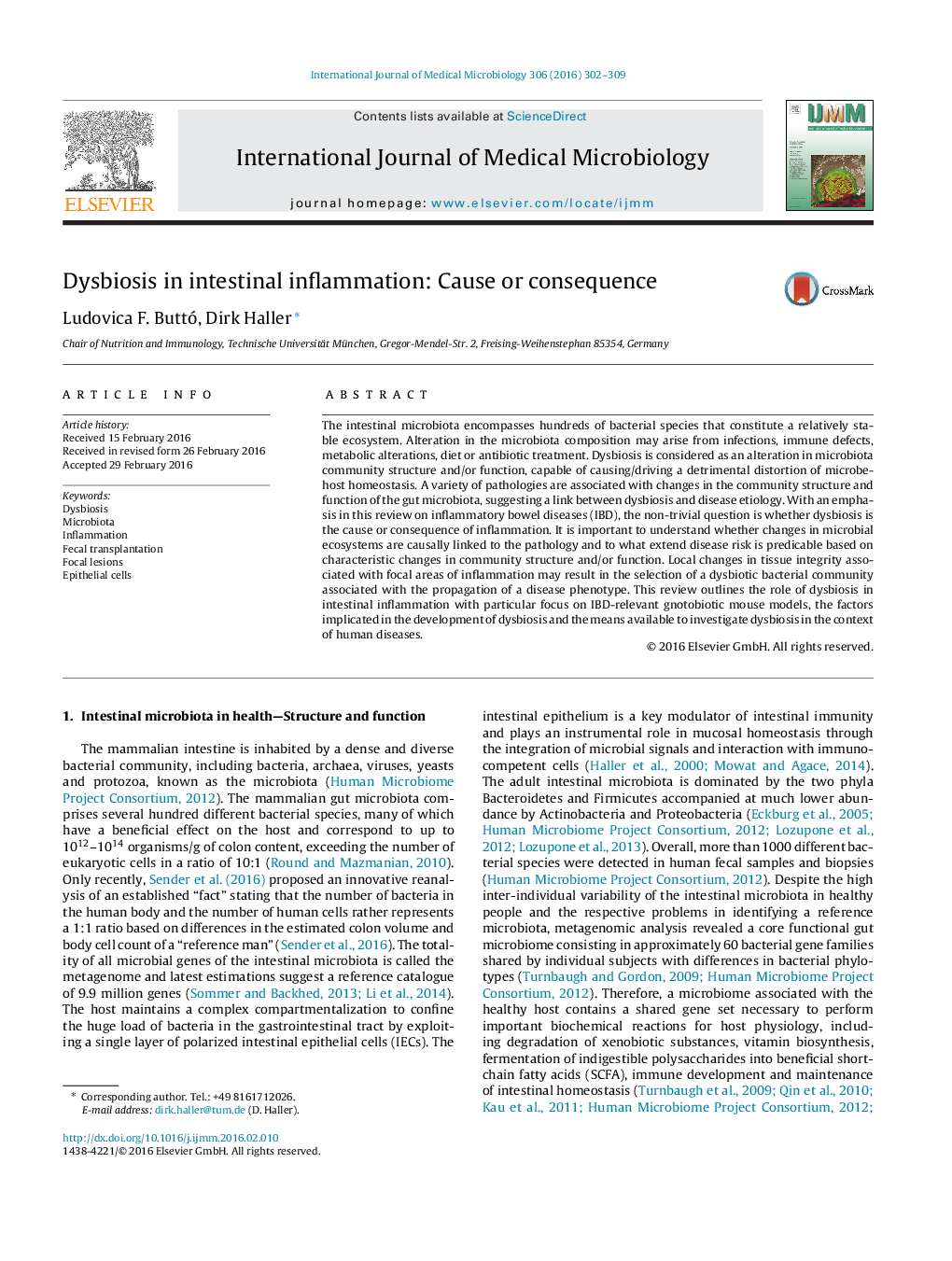| Article ID | Journal | Published Year | Pages | File Type |
|---|---|---|---|---|
| 5517828 | International Journal of Medical Microbiology | 2016 | 8 Pages |
The intestinal microbiota encompasses hundreds of bacterial species that constitute a relatively stable ecosystem. Alteration in the microbiota composition may arise from infections, immune defects, metabolic alterations, diet or antibiotic treatment. Dysbiosis is considered as an alteration in microbiota community structure and/or function, capable of causing/driving a detrimental distortion of microbe-host homeostasis. A variety of pathologies are associated with changes in the community structure and function of the gut microbiota, suggesting a link between dysbiosis and disease etiology. With an emphasis in this review on inflammatory bowel diseases (IBD), the non-trivial question is whether dysbiosis is the cause or consequence of inflammation. It is important to understand whether changes in microbial ecosystems are causally linked to the pathology and to what extend disease risk is predicable based on characteristic changes in community structure and/or function. Local changes in tissue integrity associated with focal areas of inflammation may result in the selection of a dysbiotic bacterial community associated with the propagation of a disease phenotype. This review outlines the role of dysbiosis in intestinal inflammation with particular focus on IBD-relevant gnotobiotic mouse models, the factors implicated in the development of dysbiosis and the means available to investigate dysbiosis in the context of human diseases.
